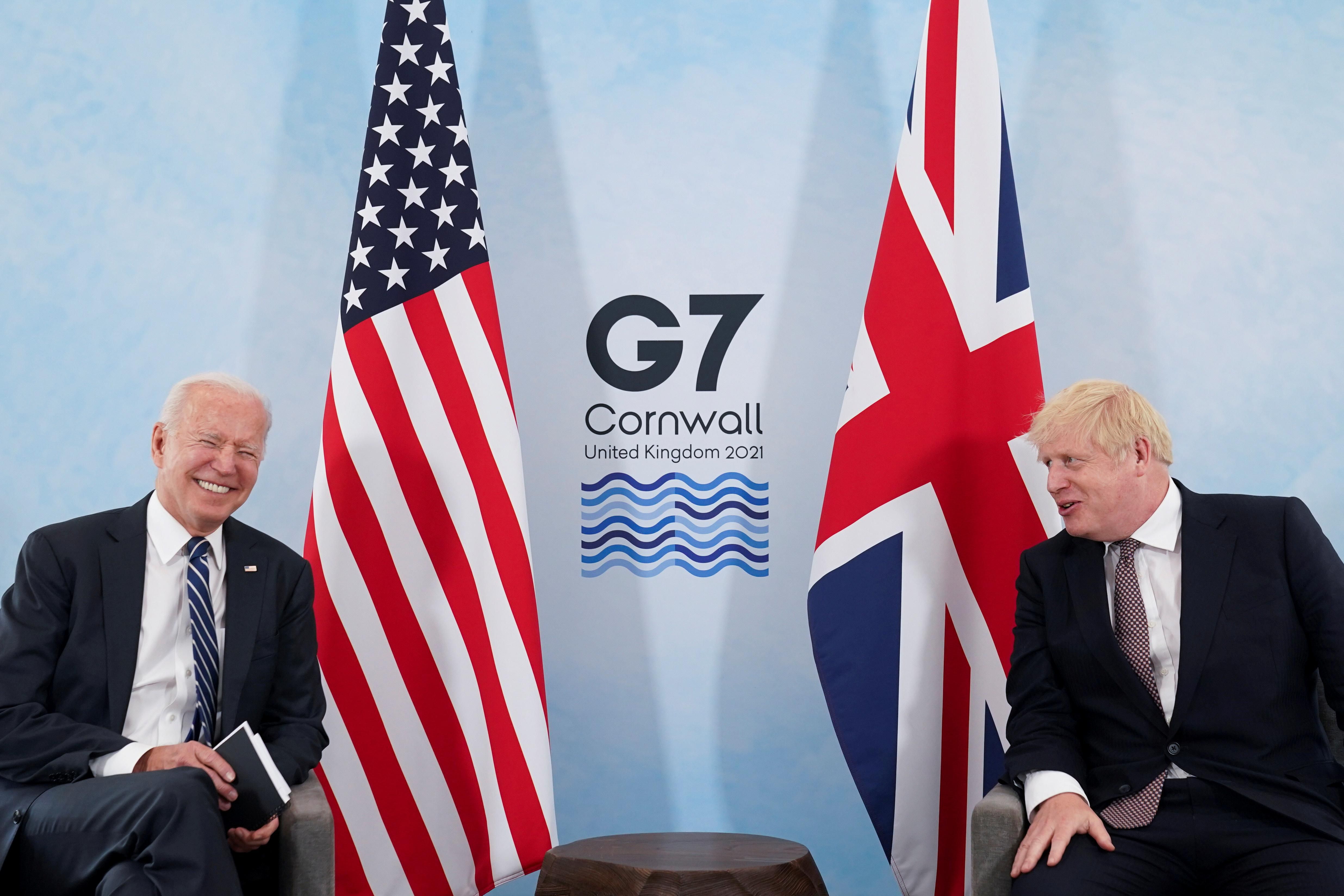What We're Watching: Biden meets Boris, Iranian ships in the Atlantic, Argentinian president's mishap
Biden hangs with Boris: On his first trip to Europe as US president, Joe Biden stopped first in the UK where he met with British Prime Minister Boris Johnson. While Biden is keen to reaffirm the close bond between the two countries, there are also some thorny issues on the agenda. The US president likely reiterated the importance of London safeguarding the fragile peace in Northern Ireland, and instructed Johnson to refrain from triggering a provision in the EU-UK post-Brexit trade agreement that would reestablish a land border separating Northern Ireland, part of the UK, and the Republic of Ireland, an EU member state. Indeed, on this issue, Johnson will have to find a middle ground in managing the warming temperature in Northern Ireland, and placating the US president, who he desperately wants to agree to a juicy post-Brexit US-UK trade deal. Also on the agenda: coordination on climate change and ensuring the smooth and safe reopening of US-UK travel after 16 months of chaos.
What's Iran up to in the Atlantic? Earlier this week, POLITICO reported that two Iranian warships, possibly carrying weapons, were making their way across the Atlantic Ocean. They seem to be headed for Venezuela, which received oil shipments from Iran last year, skirting US economic sanctions on fuel-starved Caracas. Iran's provocative move, sending "destroyer" vessels charting across international seas, is likely to spook many nations. Venezuela's neighbors, like Colombia for example, will be nervous to see strongman President Nicolás Maduro flushed with weapons at a time when the two states have severed diplomatic relations. (Colombia recognizes opposition leader Juan Guaidó as the country's legitimate president.) The US, meanwhile, will not be pleased to see Iranian military vessels on its doorstep at a time when relations between Washington and Tehran are also extremely fraught. Some experts say this maneuver is performative, with Iran trying to flex its muscle after its biggest navy ship recently caught fire and sank near the Strait of Hormuz. Either way, there is little that the US or its allies can do right now to stop the ships advancing.
What We're Ignoring:
The Argentine president's literary and historical misunderstandings: "The Mexicans came from the Indians, the Brazilians came from the jungle, but we Argentinians came here on boats from Europe." Thus Argentine President Alberto Fernández's attempt to create a vibe with visiting Spanish Prime Minister Pedro Sánchez at a presser earlier this week. But the observation, which he incorrectly attributed to Mexican poet Octavio Paz, managed to piss off people across the ideological spectrum. Right wing Brazilian president Jair Bolsonaro and his son Eduardo (who are of Italian origin) bristled at the notion that they were from the jungle, while left wing Brazilians pointed out that more than half of Brazil's population identifies as descendants not of "the jungle" but of millions of slaves brought from Africa. And while it's true that the European immigration to Argentina was larger, as a percentage of the population than in Mexico or Brazil, almost a third of Argentines still claim indigenous blood. To top it off, literature buffs note that the actual quote attributed to Paz lands a bit differently: "The Mexicans descended from the Aztecs, the Peruvians descended from the Incas… the Argentines descended from boats." Fernandez has apologized.
